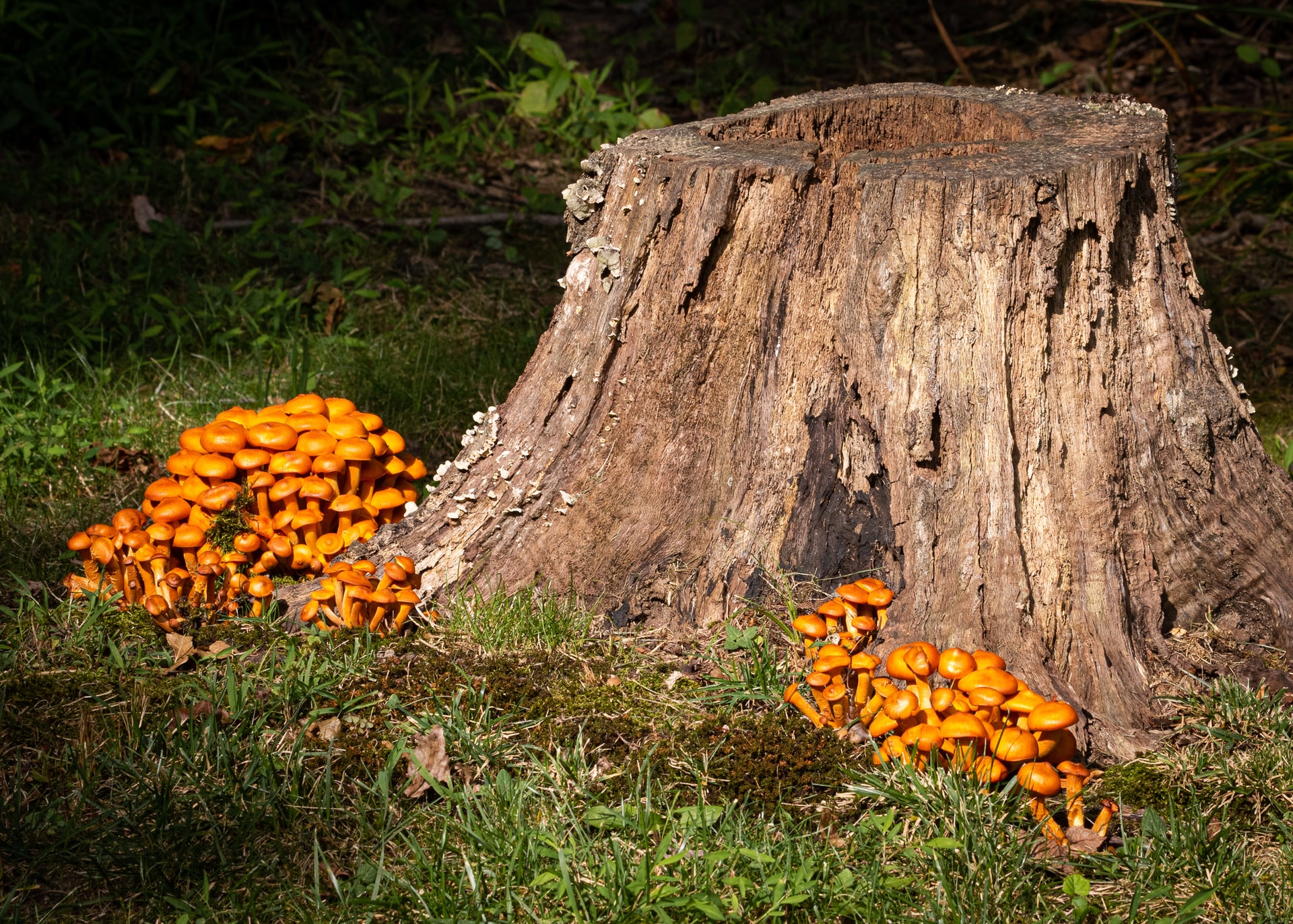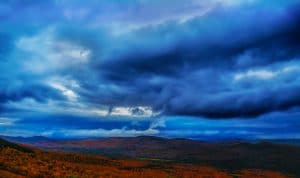I’d like to take a few minutes to direct your attention to mushrooms.
Mushrooms are infrequently at the forefront of the collective consciousness; their glory is oft-relegated to the halls of pizza toppings, Bear Grylls, and Woodstock. However, I learned a mind-boggling truth about them in my otherwise mundane undergraduate Biology II class that has stuck with me since. What I used to think is a mushroom—what you might naïvely still think is a mushroom—is not a mushroom.
Our mental representation of a mushroom, that umbrella-shaped gnome domicile, cannot rightfully claim that name. Mushrooms (fungi) are, in fact, massive networks of slender branches (mycelia, singular mycelium) that grow laterally under the protection of the cool soil. The toadstools we see in nature and the produce aisle are the above-ground fruiting bodies that each mycelium uses to reproduce. They are puny in comparison to what lies beneath. In short, mushrooms are not the essence of the organism, but the evidence that it is there.
And now, on to work.
My field—medicine—is almost necessarily all-consuming. I’ve been a medical student just seven weeks, and I’ve already witnessed my classmates refusing to bail water, surrendering their lives to the deep sea of flashcards and study guides and PowerPoint slides. As I write this, I’m preparing for an exam that seems impossibly dense, yet I know the content hardly scratches the surface of what I will one day know.
In learning environments like this, in jobs like this, it’s difficult to find identity in anything else. But we must. As Christians, we must repeatedly inquire of ourselves if our work is our essence (the fungus) or our evidence (the mushroom).
When our work becomes essential to our identity, it becomes our life-force, the thing in which we place our hope. Thus, all of the evidence–the fruit–in our lives is the outgrowth of our profession. It might be tempting to justify that by focusing on the positive outcomes of our work, but that rationale ignores the unfortunate truth that our work will inevitably disappoint us.
Doctors save, lawyers defend, engineers innovate, teachers inspire…except when they don’t. Disappointment is a 100% “or-your-money-back” guarantee for the human condition. And when the essence disappoints, the evidence shrivels.
When Christ is our reason for living–our vitality, our essence–our work is merely the evidence of His presence in us. He who never disappoints will sustain us when the patient dies, the guilty walks free, the invention breaks, and the student fails. And we can rest in the assurance that He is glorified in our work, outcomes notwithstanding.
I’d now like to revisit the mind-boggling fact I referenced earlier.
I understand if you found yourself underwhelmed by the fact that a visible mushroom is not really a whole mushroom, so you’ll be pleased to hear that I’ve been withholding the very best detail all this time. That fact is this: the largest organism on earth spans almost 2400 acres (!) and is…a mushroom! But the massive Armillaria ostoye did not come out on top by cropping up willy-nilly all over Oregon; no, its mycelium, its essence, grew deep and wide beneath the surface, allowing its evidence to grow in favorable environments.
Like the underground network of Armillaria ostoye, essence in Christ increases our capacity for experiencing all good things. Evidence of Christ will spring up outside of our work in our families, friendships, hobbies, and moments of rest. Setting projects, deadlines, and flashcards aside, what joy and satisfaction we may experience when our Savior, not our labor, is our treasure.
“You make known to me the path of life; in your presence there is fullness of joy; at your right hand are pleasures evermore.” (Psalm 16:11)
Reality Changing Observations
Q1: What is your essence?
Q2: Can you recall recent instances where you lived as if your value was in evidence rather than essence? Are you seeing people around you do it right now?
Q3: How are you held back from a peace-filled freedom and fullness of joy in Christ?






